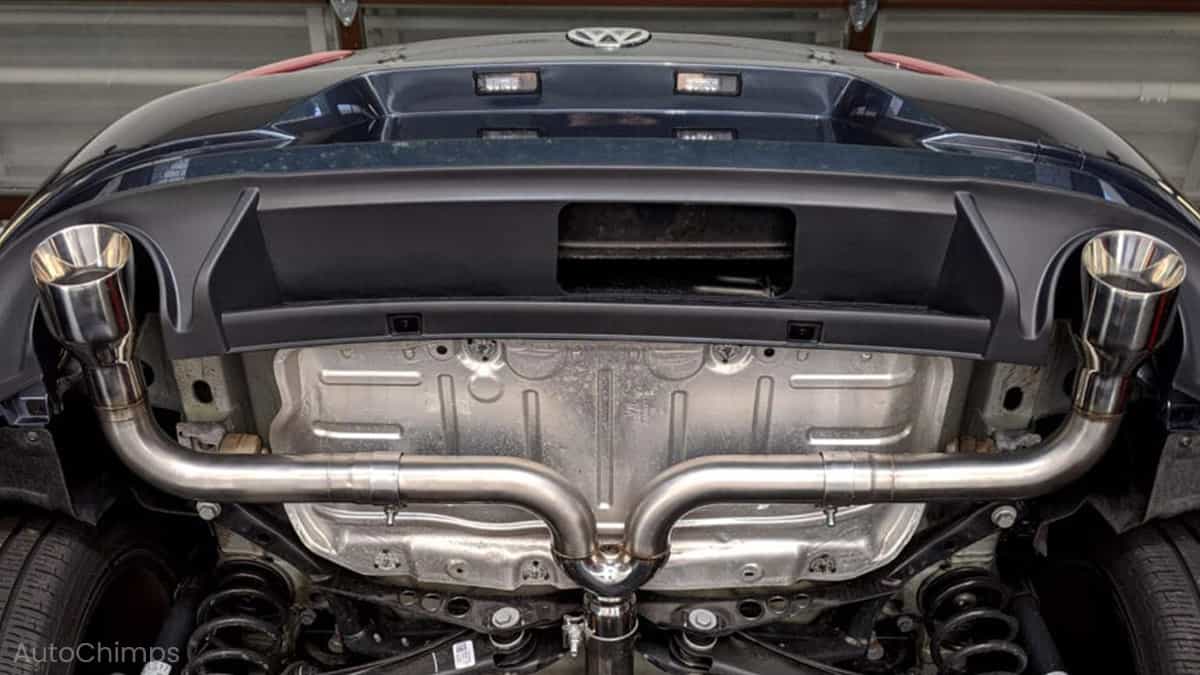How Much Does It Cost To Repair A Muffler

The exhaust system, often overlooked until it's screaming for attention, is a critical component of any vehicle. Among its various parts, the muffler plays a vital role in reducing engine noise and directing exhaust gases. When a muffler fails, it not only makes your car sound like a vintage bomber, but it can also indicate underlying issues within the exhaust system. Understanding the costs associated with muffler repair is crucial for responsible car ownership. So, how much does it really cost to repair a muffler? Let’s delve into the factors that influence the final bill.
Factors Affecting Muffler Repair Costs
Several elements come into play when estimating the cost of muffler repair. These factors contribute to the variability you might encounter when getting quotes from different repair shops.
- The Extent of the Damage: A small hole or crack might be repairable with welding or a patch, which is significantly cheaper than replacing the entire muffler. However, extensive rust, significant damage from impact, or internal component failure often necessitates a full replacement.
- Vehicle Make and Model: The cost of parts, including the muffler itself, varies considerably depending on the vehicle. Luxury cars and performance vehicles generally have more expensive mufflers due to their specific designs and materials. Imported vehicles might also have higher parts costs due to import duties and availability.
- Muffler Material: Mufflers are commonly made from aluminized steel, stainless steel, or, in some performance applications, titanium. Aluminized steel is the most affordable but also the least durable, prone to rust, especially in regions with harsh winters. Stainless steel offers excellent corrosion resistance and a longer lifespan, but it comes at a higher price. Titanium is reserved for high-performance applications and is considerably more expensive.
- Labor Costs: Labor rates vary geographically and between repair shops. Dealerships typically have higher labor rates compared to independent mechanics. The complexity of the repair also influences labor costs. A simple bolt-on replacement will take less time than a repair requiring welding or custom fabrication.
- Location, Location, Location: As mentioned above, your geographic location significantly impacts both parts and labor costs. Metropolitan areas generally have higher overhead, which translates to higher prices for automotive services.
Repair vs. Replacement: A Cost Comparison
The decision between repairing and replacing a muffler hinges on the severity of the damage and the overall condition of the exhaust system.
Muffler Repair: Repairing a muffler typically involves welding small holes or cracks. This is a viable option if the damage is localized and the surrounding metal is still in good condition. Expect to pay between $50 and $200 for a basic welding repair, depending on the complexity and the shop's labor rates. DIY repair kits are also available, but they are generally not recommended for long-term solutions, especially if you lack welding experience.
Muffler Replacement: Replacing the entire muffler is the more common and often more reliable solution, especially for older vehicles or those with significant rust. The cost of a new muffler can range from $50 to $500 or more, depending on the material, vehicle type, and brand. Labor costs for installation typically range from $50 to $200, bringing the total replacement cost to between $100 and $700. High-performance mufflers or complete exhaust systems can easily exceed this range.
Additional Considerations and Potential Costs
It's important to consider that a failing muffler might be a symptom of a larger problem within the exhaust system. A rusted-out muffler often indicates corrosion in other components, such as the exhaust pipes, catalytic converter, or oxygen sensors. A thorough inspection of the entire exhaust system is crucial before proceeding with any repair.
Replacing other exhaust components alongside the muffler can add significantly to the overall cost. For example, replacing a rusted-out exhaust pipe could add another $100 to $300 to the bill. Similarly, if the oxygen sensors are faulty due to exhaust leaks, replacing them can add another $50 to $200 per sensor. Ignoring these underlying issues can lead to further damage and more costly repairs down the line.
Getting the Best Deal
To ensure you're getting a fair price, it's always wise to get multiple quotes from different repair shops. Ask for a detailed breakdown of the parts and labor costs. Inquire about the warranty on the muffler and the repair work. Consider purchasing the muffler yourself from an online retailer, but be sure to verify compatibility with your vehicle and factor in shipping costs. Remember, the cheapest option isn't always the best. Prioritize quality and reliability over saving a few dollars in the short term. A reputable shop with experienced mechanics is worth the extra cost.
Finally, regular maintenance, such as periodic exhaust system inspections, can help prevent premature muffler failure and costly repairs. Catching minor issues early can save you a significant amount of money in the long run.
